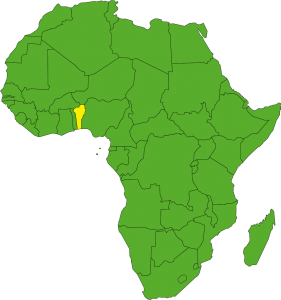A Rundown of Upcoming Elections in Africa
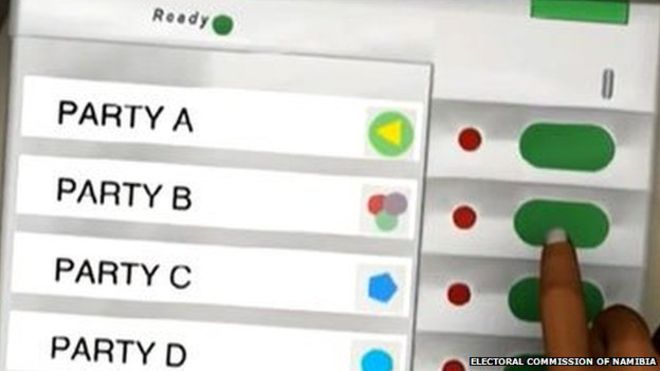
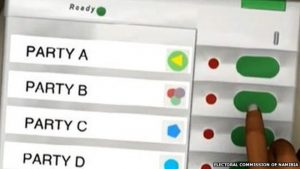
[/media-credit] From the Electoral Commission of Nambia.
Nambia was the first African nation to use electronic voting machines in its November 2014 Presidential Elections.
Country:
Benin
Election:
Members for the National Assembly (April 2015)
Why it Matters:
Benin’s President Thomas Boni Yayi has said that he will not seek a third term when his current time in office ends in 2016. However, a major constitutional reform proposition is to take the two-term limit off the table, potentially giving Yayi the ability to run again. The current election puts members in the national assembly who will vote on that reform.
Country:
Burundi
[media-credit id=”3041″ align=”alignnone” width=”265″]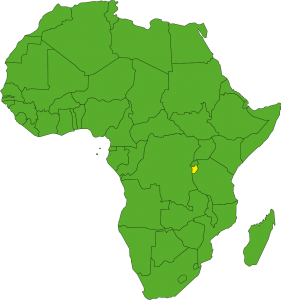 [/media-credit]Election:
[/media-credit]Election:
National and Local Assembly (May 26, 2015)
President (1st Round: June 26, 2015, 2nd Round: July 27, 2015)
Senate (July 17, 2015)
Collines (August 25, 2015)
Why it Matters:
Civil unrest erupted in Burundi after the ruling party overwhelmingly elected President Pierre Nkurunziza as its candidate for the June 26 presidential election. This has been the worst political crisis in Burundi since the civil war ended in 2005. Like its neighbor Rwanda, Burundi is politically divided along Hutu and Tutsi ethnic lines.
Two prominent opposition leaders in Burundi have said they will boycott presidential elections in June unless President Pierre Nkurunziza drops his bid to stand for a third term.
Nkurunziza’s opponents argue a third term is unconstitutional and most importantly goes against the Arusha peace accord. Nkurunziza supporters argue, however, that his first term does not count since he was elected by the Parliament and not directly by the people.
The newly re-established Burundi Humanitarian Country Team has endorsed a contingency plan for the upcoming elections, requesting $11.6 million to respond to the needs of up to 50,000 people most likely to be affected within the first eight weeks of violence due to elections.
In a worst-case scenario, the UN’s Office for Coordination of Humanitarian Affairs (OCHA) estimates 350,000 people could be in need of humanitarian assistance within six months.
Country:
Burkina Faso
[media-credit id=”3041″ align=”alignnone” width=”281″]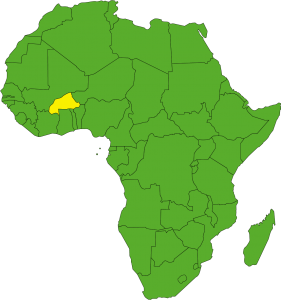 [/media-credit]Election:
[/media-credit]Election:
Presidential and National and Local Assemblies (October 11, 2015)
Why It Matters:
Burkina Faso’s current President Michel Kafando said the country will hold elections in October 2015. This is one year after the military took power following popular protests and a military coup that deposed President Blaise Compaoré, who had been in power for 27 years. Kafando, a former foreign minister and ambassador to the United Nations, was appointed as head of state by a committee of representatives from the army, religious groups and civil society organizations. His main task is to oversee a transition to elections by the end of this year. Under the terms of a charter for the transition worked out during the negotiations since Mr. Compaoré’s departure, Mr. Kafando will not be permitted to run in the presidential election. In addition, the assembly passed an electoral code that prohibits supporters of ousted President Compaoré from participating in the October elections.
These elections will most likely be more democratic than any under Compaoré, however, many of the new election rules have less to do with fairness than with uprooting the vestiges of the old regime.
Country:
Comoros
[media-credit id=”3041″ align=”alignnone” width=”300″]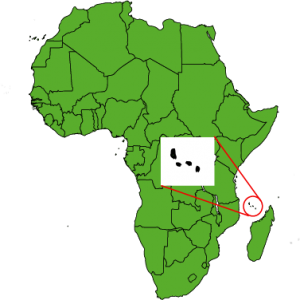 [/media-credit]Election:
[/media-credit]Election:
Union President and Island Governors (2016)
Why It Matters:
Recent elections for 24 national legislation seats gave the Union for the Development of Comoros Party 8 seats, with the Juwa Party in second with 7 seats. This was largely seen as a test for former president Abdallah Sambi (2006-2011), a Muslim populist poised to make a comeback before the 2016 presidential elections.
After 20 coups or attempted coups in the four decades since independence in 1975, a gentleman’s agreement was reached to rotate the presidency between the three islands.
Under that deal, Mr. Sambi cannot run for office next year because it will not be his island’s turn. But he is determined to change that rule if his Juwa party wins the majority of parliamentary seats. Though they had a strong showing, the Juwa Party did not beat out the ruling Union for the Development of the Comoros Party. Current President Ikililou Dhoinine’s five-year term ends in May 2016.
Country:
Ethiopia
[media-credit id=”3041″ align=”alignnone” width=”281″]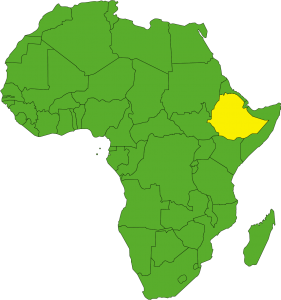 [/media-credit]Election:
[/media-credit]Election:
House of People’s Representatives and Regional Assemblies (May 24, 2015)
Why It Matters:
The next elections will be the first held under the current Prime Minister, Hailemariam Desalegn. Desalegn took office in September 2012 after the death of the long-serving Meles Zenawi, who ruled for 21 years since overthrowing the communist government (The Derg) in the 1990s. Desalegn is the first Ethiopian head of government in 200 years to have come from non-Tigray and non-Amhara ethnic groups.
These elections, however, will likely see another win for the Ethiopian People’s Revolutionary Democratic Front (EPRDF) ruling party. In the last decade, authorities have systematically closed the political space through a series of anti-terrorism, press and civil society laws, including jailing bloggers and journalists. Ethiopia’s ruling party, now in power for close to 24 years, won the last four elections. The government has systematically weakened the opposition and does not tolerate any form of dissent, which lead to violent protests in the Oromia region last April. There is little hope that the 2015 elections would be fundamentally different from the 2010 polls, in which the ruling party won all but two of the 547 seats in the rubber-stamp national parliament. However, a splintered opposition provides no current alternative vision.
Country:
Guinea
[media-credit id=”3041″ align=”alignnone” width=”259″]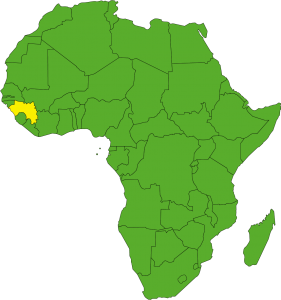 [/media-credit]Election:
[/media-credit]Election:
Presidential (October 11, 2015)
Why It Matters:
Guinea will hold the first round of a presidential election on Oct. 11, 2015 according to the West African nation’s electoral commission. Opposition parties have called the October date decision unconstitutional. President Alpha Conde is widely seen as the favorite to win a second term in Africa’s largest bauxite exporter, though he has not officially confirmed his candidacy. Opposition parties said the move breaks an agreement that local council elections would be held before the presidential vote. Elections since 2010, after Guinea emerged from decades of autocratic rule, have been marred by violent protests, with parties divided along ethnic lines.
Country:
Ivory Coast
[media-credit id=”3041″ align=”alignnone” width=”259″]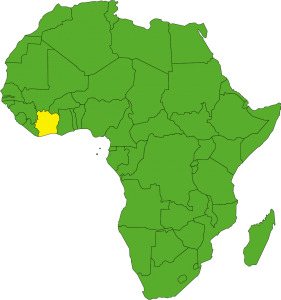 [/media-credit]Election:
[/media-credit]Election:
President (October 2015)
Why It Matters:
The major players in these elections are (1) incumbent Allasane Ouattara and his Rassemblement des républicains (RDR); and (2) the Front populaire ivoirien (FPI). The FPI, previously led by the now-indicted Gbagbo (by the International Criminal Court), is currently led by Pascal Affi N’Guessan who will likely participate in the 2015 elections. Henri Konan Bédié and the Parti démocratique de la Côte d’Ivoire (PDCI) were expected to be strong contenders in the 2015 elections. However, in mid-September 2014, Bédié endorsed Ouattara for re-election in 2015, effectively ruling himself out as a candidate for the presidency. Ouattara was allowed to run in 2010 even though he was labeled as a Burkinabe (or a non-citizen from the ethnic group across the border in Burkina Faso). Bédié’s endorsement makes Ouattara the likely winner in 2015.
Country:
Sudan
[media-credit id=”3041″ align=”alignnone” width=”261″]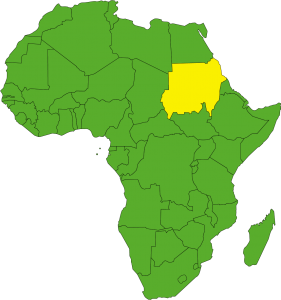 [/media-credit]Election:
[/media-credit]Election:
President, National Assembly, State & Local (April 3, 2015)
Why It Matters:
Bashir, who has ruled the country since coming to power in a military coup in 1989, will continue his rule, after garnering 94 percent of the vote. Brining more of the same in Sudan, Bashir will most likely continue to focus on fighting against rebel groups in Darfur, Kordofan and the Blue Nile States.
Country:
Tanzania
[media-credit id=”3041″ align=”alignnone” width=”259″]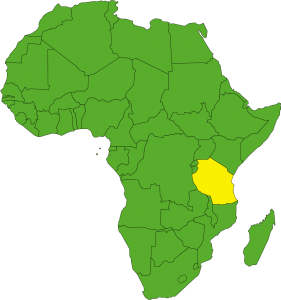 [/media-credit]Election:
[/media-credit]Election:
President, National Assembly, Zanzibar, Local (October 2015)
Why It Matters:
Tanzania’s fifth general elections will take place in October 2015. Notably, President Kikwete is constitutionally barred from seeking a third term, and a large number of candidates are throwing their hats into the ring. Presently, the most important political parties in Tanzania and their leaders are the incumbent CCM (Mizengo Pinda—presently the prime minister, but is battling an internal challenge to his nomination); Chadema (Freeman Mbowe); and CUF (Mohamed Mnyaa).
It is expected that the 2015 elections will provide the opportunity for further deepening and institutionalization of democracy in Tanzania. However, Tanzania has postponed a referendum on a new constitution after delays in registering voters. The postponement heightened tensions over the charter, which the main opposition parties have rejected. The delay also could complicate presidential and parliamentary elections due to be held in October.
Country:
Togo
[media-credit id=”3041″ align=”alignnone” width=”262″]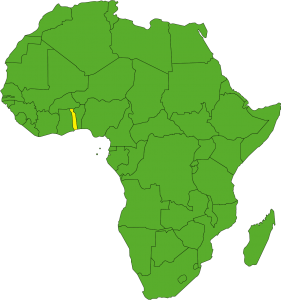 [/media-credit]Election:
[/media-credit]Election:
President (April 15, 2015)
Why It Matters:
Togo’s President Faure Gnassingbe won re-election for a third term in office, according to provisional results, extending a family dynasty that has already lasted nearly a half-century. The results gave Gnassingbe about 59 percent of the vote in Saturday’s election. Leading opposition candidate Jean Pierre Fabre had 35 percent of the vote.

